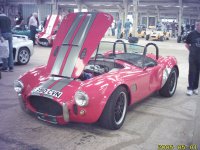As someone who sprays cars in an industrial works unit I shall offer some advice.

Fumes are going to be a huge issue when spraying an entire car.
Even with a HVLP gun when spraying 2k lacquer and base coat you will soon fill the booth with fumes. breath these in, especially the lacquer and you will be coughing your lungs up. normal masks including charcoal cannister ones are not really sufficient for an enclosed space, the fumes will get through the mask. An air fed mask is ideal. Ventilation is critical. although you can simply open up your structure to allow a through draft

Its not as though its going to retain heat and therefore wont be an issue to have some large vents.
As a note. The fact that you are going to be venting harmful gases in a back garden via an extractor or window, suggests you should not be spraying in a domestic environment as neighbours could be exposed.
That's your call though.
As posted above preperation is time consuming and is the key to a good paint job. Paint will not hide poor prep work infact it will amplify it. High build primer is the only paint that will conceal minor imperfections. If you get the prep work right then it will save loads of time in the long run. Also when stripping the car of plastic trims etc. Remember it is often quicker to remove mirrors and such, than to mask them up. If it comes off then remove it, this will prevent breaks in the paint/lacquer.
The actual spraying of base coat and lacquer are the faster processes of spraying a car. However as a novice time and practice should be taken with the spray gun to set it up with the correct pressure etc. Also for the user to practice holding the gun level at the correct distance from the panel to gain good trigger control and learn the correct speed in which to move it at. This is all in order to allow even paint spray

Again as posted above air temperature is important. Ideally around 22degrees. So pick a nice warm day, choose the correct drying hardner for the paint and aim to have the lacquer curing well before cold temps set in.
Have the area in the booth free from contaminants and be as anal as possible about keeping things clean.

Spraying outside on a sunny day is not a problem infact you can get awesome results. Is just going to be complicated doing an entire car.
hope this helps.


